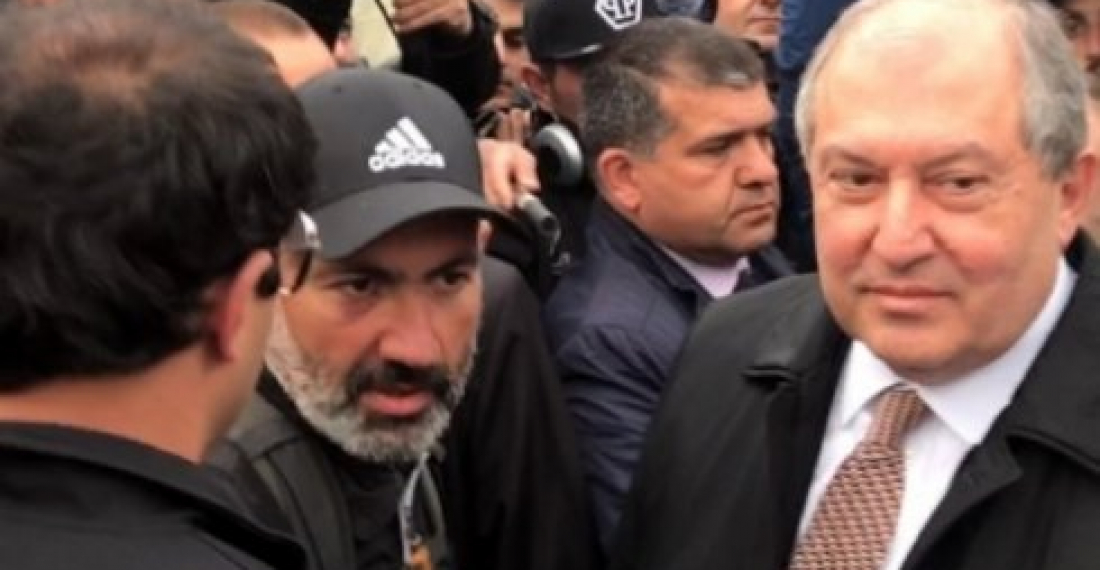There is an impasse in proposed talks between the current Armenian government, and the leadership of the protest movement that has been pushing for political change in Armenia through street protests.
Talks scheduled to take place at midday on Friday (27 April) failed after acting prime minister Karen Karapetyan said he will not attend talks where the agenda has been pre-determined.
Opposition political forces however continue with consultations between each other. The leader of the protest movement, Nikol Pashinyan, on Friday also met with the country's president Armen Sarkissian.
Pashinyan told journalists later that Armen Sarkissian had now provided proof that he had renounced his British citizenship in 2011, and that therefore there was now no problem with the protest movement dealing with him. Sarkissian was elected president by parliament earlier this month. His office however has been stripped of all executive power, and he remains only a symbolic head of state.
The Armenian parliament is expected to meet on 1 May to elect a new prime minister, after the resignation of Armenia's strongman Serzh Sargsyan on Monday. The ruling Republican Party still has a majority in parliament and insists on choosing the new prime minister, but Pashinyan says a republican prime minister is not acceptable for the protest movement.
source: commonspace.eu
photo: Armenian protesters leader, Nikol Pashinyan with president Armen Sarkissian meeting on Republic Square on 21 April 2018 (picture courtesy of hetq.am)







